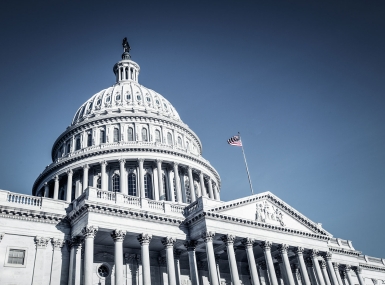Supreme Court to consider case involving use of public comments

The State and Local Legal Center (SLLC) filed an amicus in Kisor v. Wilkie asking the Supreme Court to overturn Auer v. Robbins (1997). In that case the Supreme Court reaffirmed its holding in Bowles v. Seminole Rock & Sand Co. (1945) that courts must defer to an agency’s interpretation of its own regulations.
In Kisor v. Wilkie, the Federal Circuit deferred to the Veterans Administration’s (VA) definition of “relevant” when determining whether a veteran’s claim for benefits can be reconsidered.
James Kisor is a Vietnam veteran who participated in Operation Harvest Moon. In 1983 a VA psychiatrist, while noting Kisor’s participation in this operation, determined he didn’t have PTSD. Kisor was denied disability benefits. In 2007, Kisor was diagnosed with PTSD and the VA gave him full disability benefits prospectively. Kisor also asked the VA to “reconsider” his case and provide him with an effective date of benefits of 1983.
Per regulation, VA’s receipt of “relevant official service department records that existed and had not been associated with the claims file when VA first decided the claim” allow an application to be reconsidered. Kisor claimed that his Combat History document and other paperwork from 1983 that document his participation in Operation Harvest Moon were such records.
Kisor didn’t argue that these records show that he was diagnosed with PTSD in 1983. Instead he claims that these records were “relevant because they speak to the presence of an in-service stressor, one of the requirements of compensation for an alleged service-connected injury.” The VA claims they are not “relevant” because “they addressed the matter of an in-service stressor, which was not ‘in issue,’ rather than the issue of whether he suffered from PTSD, which was ‘in issue.’”
Kisor argued for a broad definition of “relevant” and the VA argued for a narrow definition. Deferring to the VA, the Federal Circuit adopted the VA’s narrow definition of “relevant” noting it isn’t “plainly erroneous or inconsistent” with the VA’s regulatory framework.
The SLLC amicus brief argues the Supreme Court should overturn Auer. “By demanding deference to an agency’s interpretation of its own regulations, Auer provides a powerful incentive for agencies to abandon the notice-and-comment process that facilities dialogue among federal, state and local governments. This, in turn, invites dramatic shifts in federal policy with each new administration — and tends to result in policies that lack the clarity and wisdom that public participation can engender.
Worse still, when agencies do engage in notice-and-comment rulemaking under the Auer regime, they do so knowing that by crafting ambiguous regulations they can expand their own power to unilaterally dictate federal policy through subsequent interpretation.”
The Supreme Court will hear the case on March 27, with a decision expected at the end of June.
Allyson N. Ho, Kathryn Cherry, and Elizabeth A. Kiernan of Gibson, Dunn & Crutcher wrote the SLLC amicus brief which the following organizations joined: NACo, the National Conference of State Legislatures, the Council of State Governments, the United States Conference of Mayors, the International City/County Management Association and the International Municipal Lawyers Association, the Government Finance Officers Association and the National School Boards Association.

Attachments
Related News

NACo sends letter to congressional appropriations committees urging federal investments in county government activities
On July 9, NACo sent a letter to leaders of the U.S. House and U.S. Senate Appropriations Committees urging them to adequately fund key federal programs of importance to counties in the Fiscal Year (FY) 2026 discretionary appropriations bills.

U.S. Congress passes reconciliation bill: What it means for counties
On July 3, the U.S. Congress passed sweeping budget reconciliation legislation.

County officials voice concern for SNAP, Medicaid amid reconciliation vote
Ahead of the Senate and House's budget reconcilliation votes, county officials from five states traveled to Capitol Hill June 24, to advocate against its provisions related to the social safety net programs.
